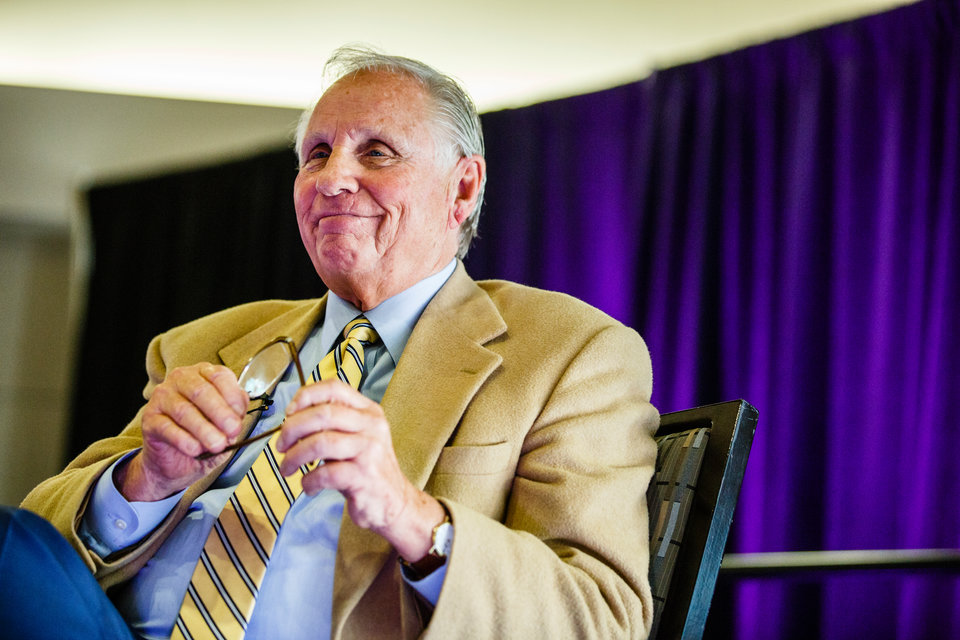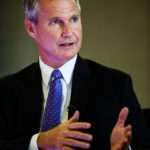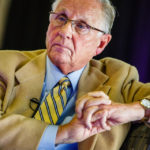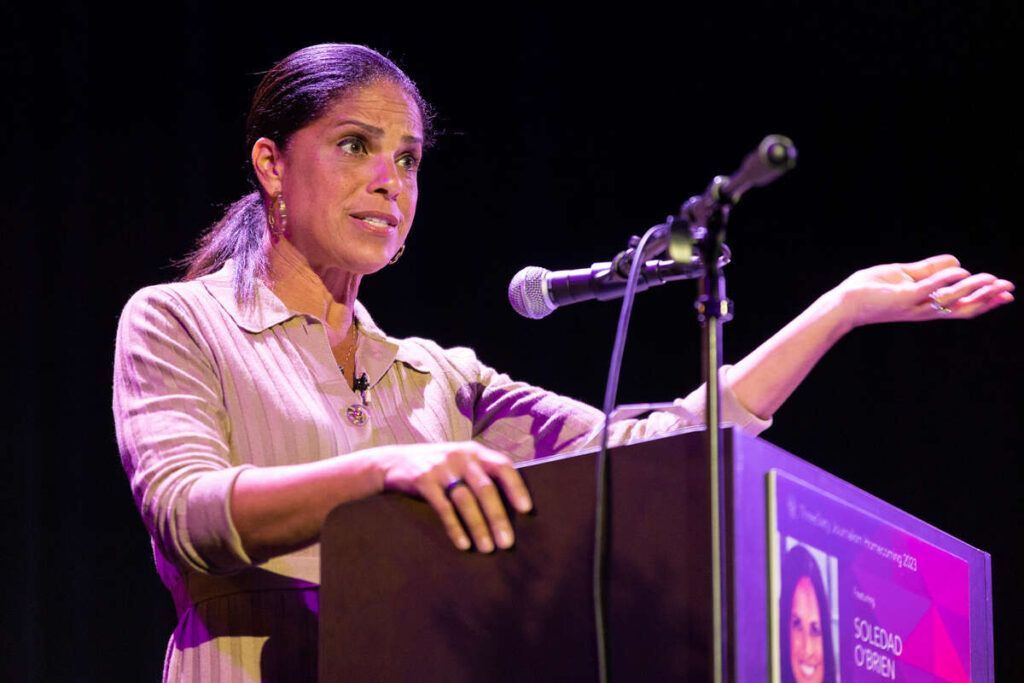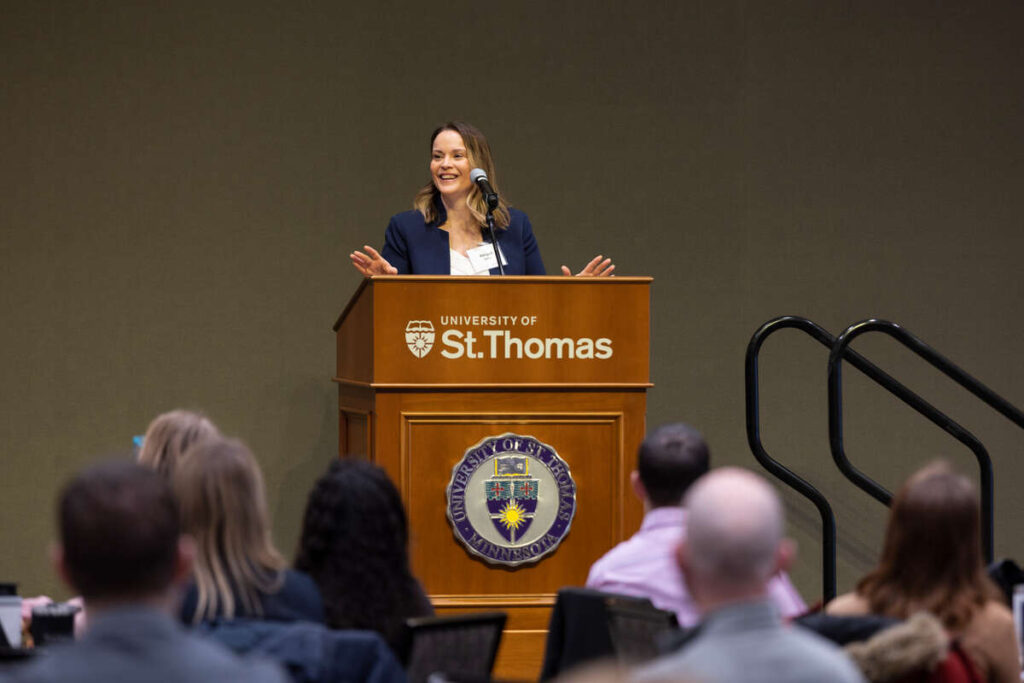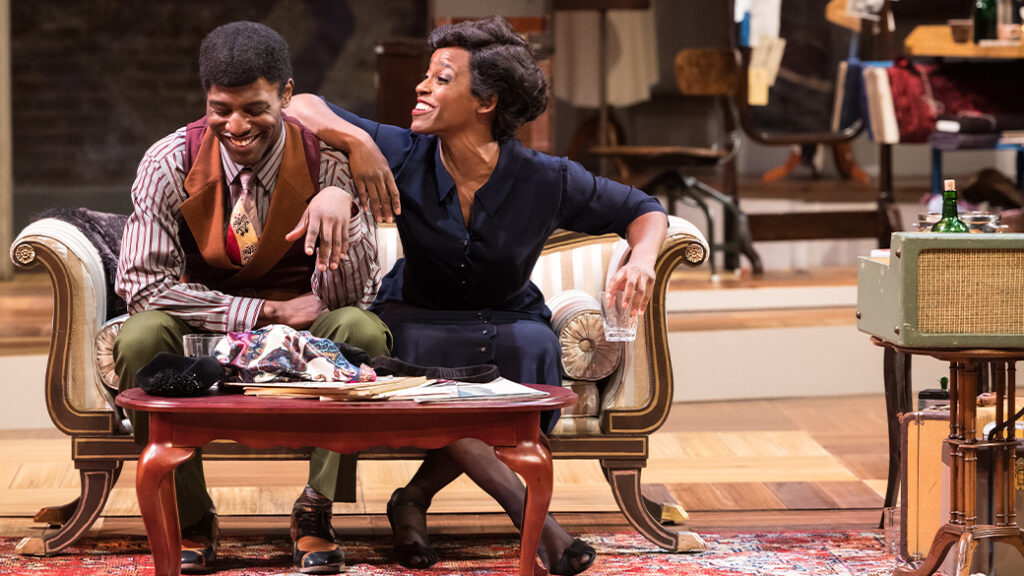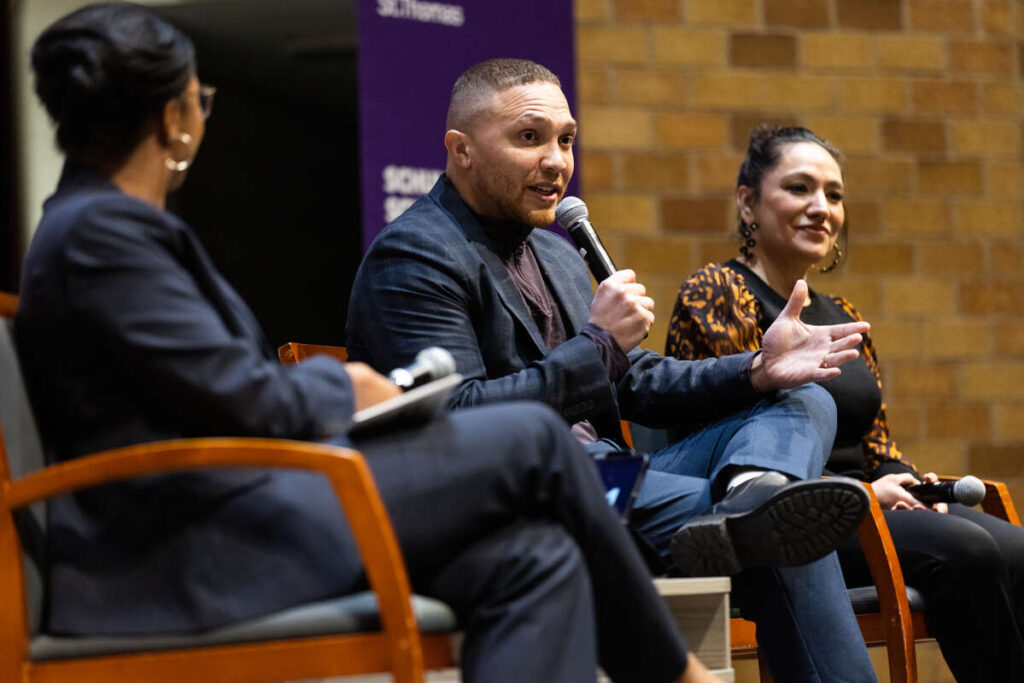With exactly one month to go before the 2016 elections, it was an extremely fitting time for the St. Thomas Alumni Association’s First Friday Speaker Series to feature a conversation between veteran political reporter Tom Hauser ’83 and former Minnesota Gov. Arne Carlson. After joking about Hauser’s unfounded fears of then-governor Carlson’s tough treatment of reporters when he started as a political reporter in 1997, the pair candidly discussed a myriad of current political issues in front of a packed James B. Woulfe Alumni Hall on the St. Paul campus.
Here are five observations from the discussion.
A political conversation in 2016 can be all at once funny, insightful, depressing and hopeful
Led initially by Hauser’s questioning and later on by the audience’s, the discussion centered on gathering Carlson’s insights into politics today. Amidst those were the many harsh realities of the nation’s current political climate, from the fracturing of the two-party system to the demonization of politicians, but also featured humor (recalling the time Franklin Roosevelt served the King George VI of England a hot dog in 1939 was a highlight) and potential solutions (especially the idea of a president focusing on building cross-party coalitions to address policies) that gave hope to the idea that American politics can be better.
Coalitions, coalitions, coalitions
The former governor raised the importance of coalition-building several times throughout the 45-minute discussion, citing it as a key factor for resolving federal gridlock. “When you bring members of the legislative body into your [executive] home, they’re truly flattered. When you ask for advice or input they’re flattered. There’s nothing wrong with using relationships and friendships to build common goals,” Carlson said, citing Lyndon B. Johnson and George H.W. Bush as prime examples of former presidents who accomplished this. “[Donald] Trump couldn’t unite the Republicans in either house,” Carlson said. “Hillary [Clinton] has the potential to. Talking to Republicans in the Senate, they’ll tell you she was a good team builder.”
Carlson endorsing Hillary Clinton
Hauser pointed out that Clinton is another in a line of many Democrats Carlson has endorsed since his time in office as a Republican governor and asked Carlson if he still considered himself a Republican, to which Carlson replied, “What do you do when you feel the party left you?” Carlson bemoaned how far the party has moved from being the party of Abraham Lincoln and holding a strong reputation on finance to where the Republican Party stands today – on social issues, especially. “Let’s just say I’m a very independent Republican,” Carlson surmised.
A demonization of Clinton by Republicans
Prompted by Hauser’s questioning of how the presidential race remains so close, Carlson pointed to the demonization of Clinton as a prominent example of what has become the norm in politics. “You can barely go through a day without Benghazi being mentioned. ... We’ve had 10 congressional investigations headed by Republicans, and each time they came back saying intelligence did not fail. … There’s nothing there. The result of that? Another investigation. And these investigations have in fact become trials, subpoenas are filed, the assumption of guilt [is there],” Carlson said. Carlson compared that to investigations after the 1983 bombing in Beirut that killed 241 Marines during President Ronald Reagan’s presidency. “If that had happened under the Obama administration he would have been impeached. Without question. What we have allowed the Republican Party to do is demonize the opposition and criminalize politics.”
Redefining the roles of politicians and citizens
Summing up the discussion’s final thoughts, Carlson pointed to the need for major change in the relationship between politicians and those they represent. “When you begin to see all the questions that have to be answered, we need to redefine the role of the citizen. We as politicians have made the cardinal sin of going to you and saying what we will do for you if you elect us,” Carlson said. The onus of government needs to be shared by citizens, Carlson said, and we need to put back in place the idea that the nation’s best and brightest should be leading in government. “We ask young people if you’re willing to go into public service and the answer is absolutely not. No one wants to go into a system that doesn’t have any semblance of respect for other people,” Carlson said. “We need to rebuild the goodness in America, bringing out the goodness in people and not their worst.”

